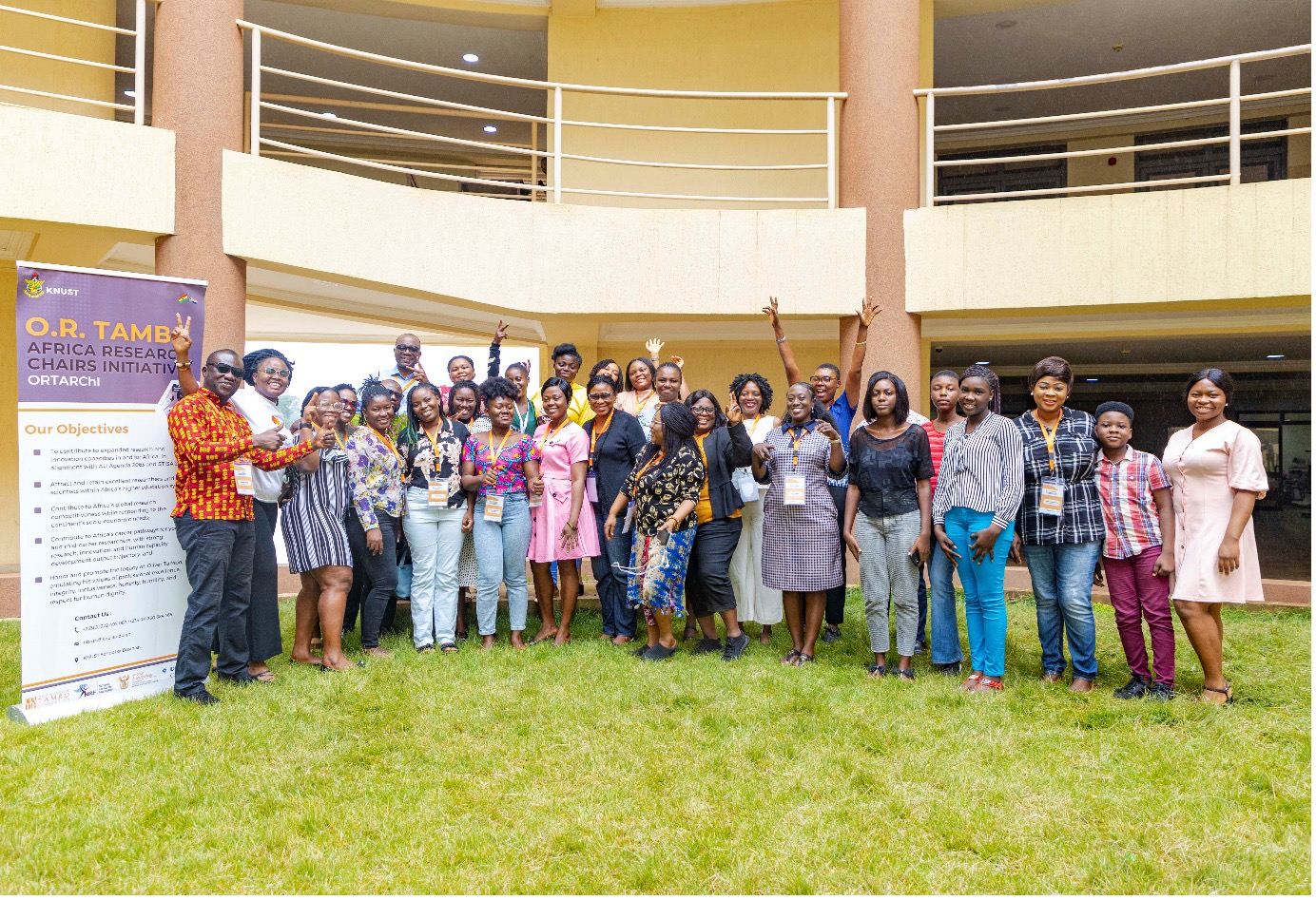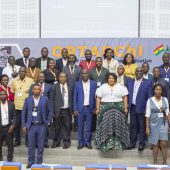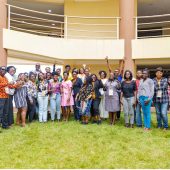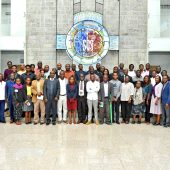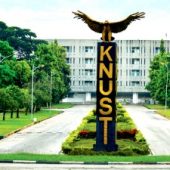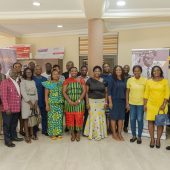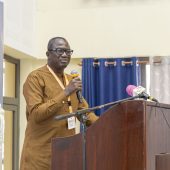Introduction
The O.R. Tambo Africa Research Chair Initiative (ORTARChI), hosted at the Kwame Nkrumah University of Science and Technology (KNUST) School of Business (KSB) in Kumasi, organized a 2-day professional training program for selected women entrepreneurs in the Ashanti region from 26th to 27th August 2024
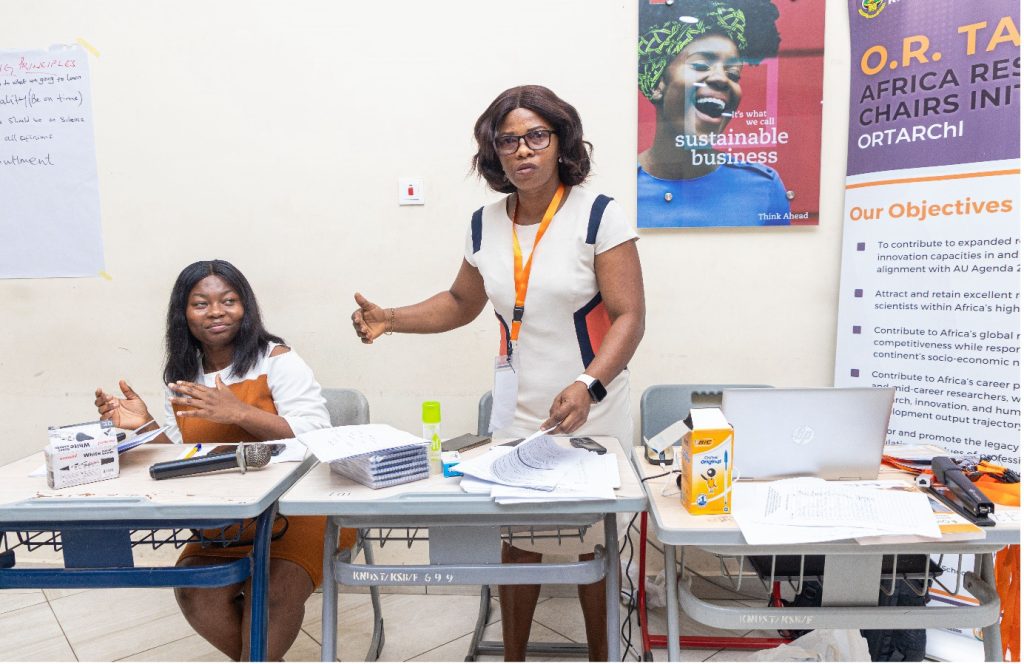

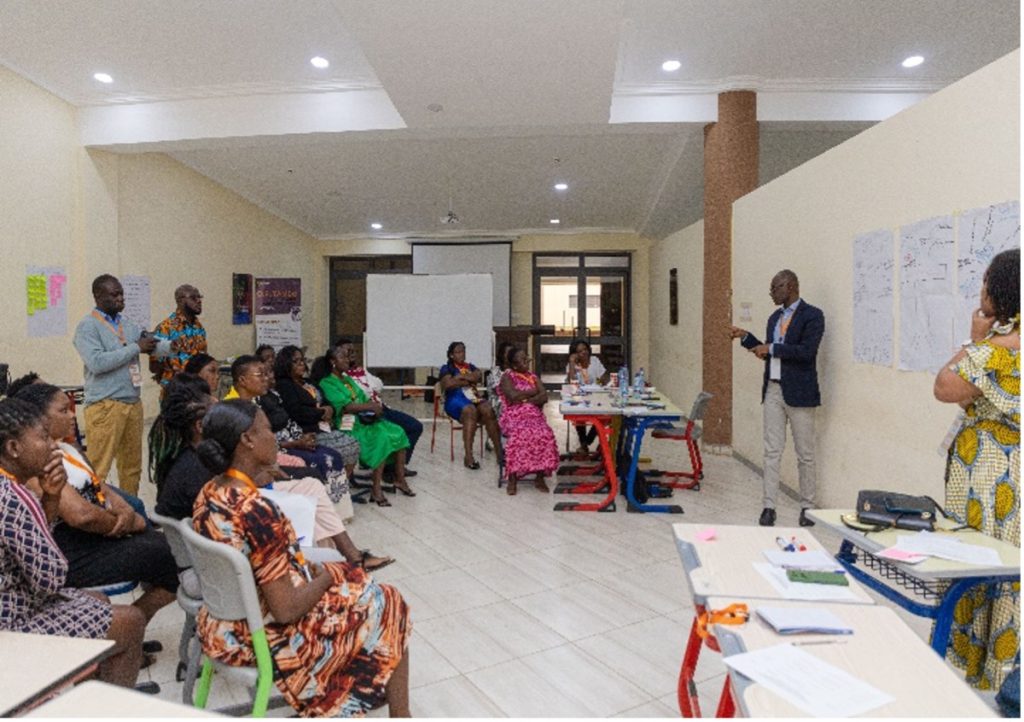
Day 1: Opening Remarks
The training program began with a welcome address by Dr. Joseph Owusu, the academic programmes coordinator of the OR Tambo Chair at KNUST. He explained that the ORTARChI Africa Research Chair at KNUST has an overall objective of collaborating with academia, industry and government partners to enhance applied research in technology entrepreneurship and employability, engage relevant stakeholders for research translation as well as strengthen and expand postgraduate education in the areas of health, agriculture, and inclusive finance technology entrepreneurship
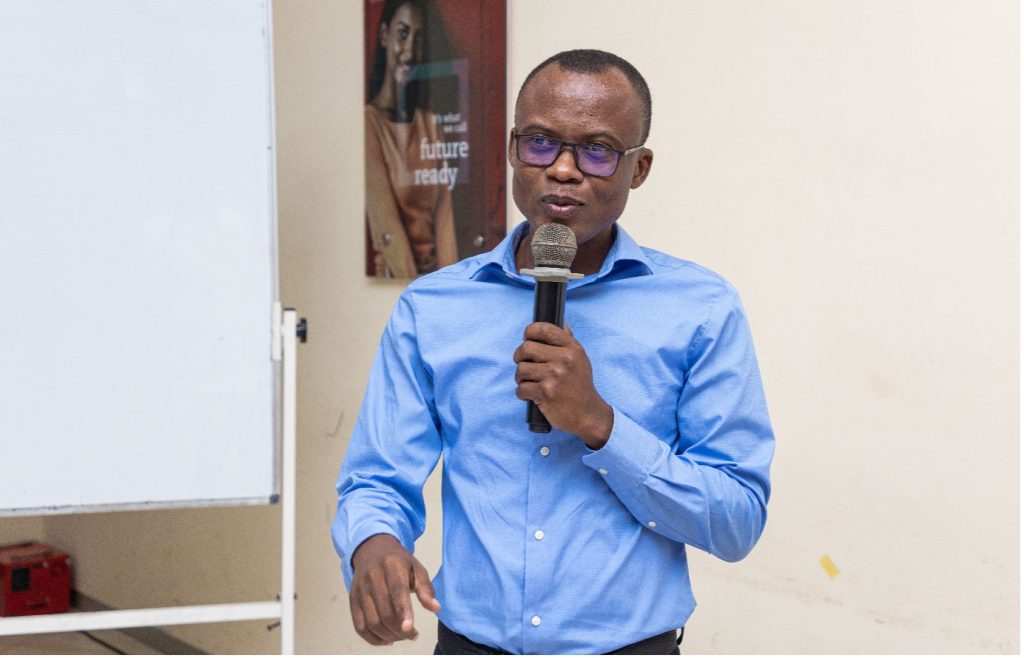
He added that the Chair seeks to refocus development attention on entrepreneurship and employability to lead a continent-wide conversation on how to use transformative research and educational engagement initiatives to harness the potential of African youth to create new jobs through entrepreneurial activities. He noted that the training was designed to equip the participating women entrepreneurs with the requisite skills, competencies, and knowledge needed to grow their businesses. He also disclosed plans to expand the training to other regions across the country.
The Project Finance Officer, Mr Bismack Owusu Adu, also encouraged the participants to seize the opportunity to acquire and learn new skills to grow their businesses. Participants were drawn from various business sectors, including fashion design, beauty, farming, catering, cosmetology, and hairdressing.
Facilitators
- Dr. Tweneboah-Koduah, CEO & Principal Consultant, Hipag Consulting Services
- Gifty Afi Cudjoe, PMP, Associate Consultant, Hipag Consulting Services
- Maahi Mohammed, Mastercard Foundation – KNUST, Project Officer
- Richard Agyare, Chief Operations Officer, Grassroots Hub
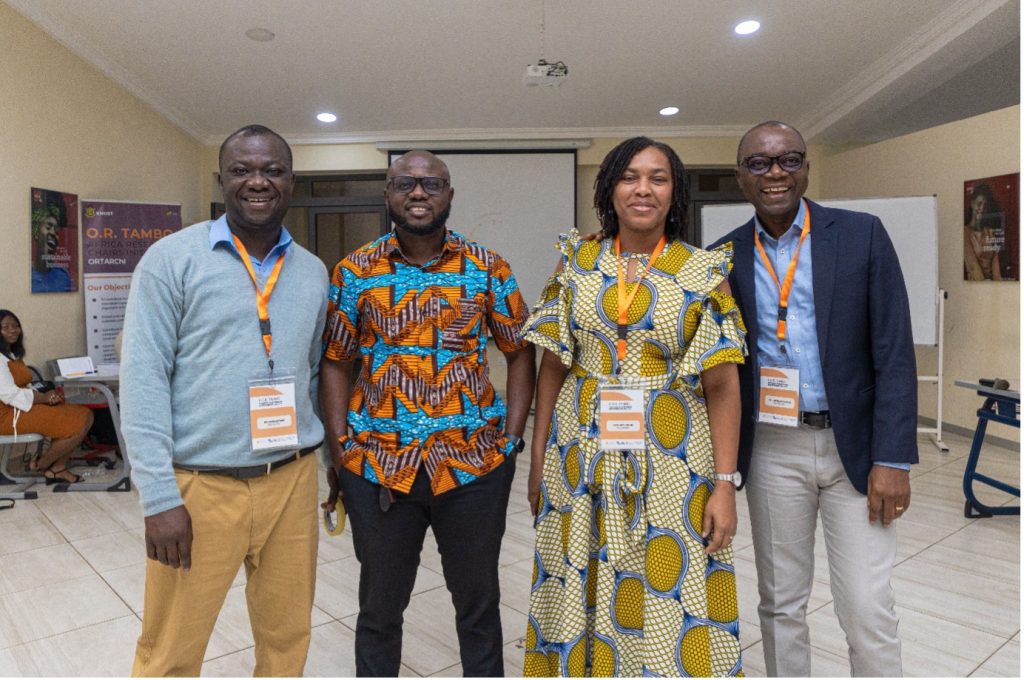
Areas of Training
The training began with a networking session where participants introduced themselves, their businesses, and their goals. They shared hopes for acquiring new skills and concerns about maintaining continuity after the training. The facilitators introduced the “Problem Tree” tool, which helps business owners identify problems, analyse causes and effects, and develop solutions. Participants worked in groups to discuss common business challenges and apply the Problem Tree tool. Over the 2 days, participants were introduced to various topics including:
1. Time Management
This session highlighted strategies like creating a to-do list, prioritizing activities, delegating tasks, and setting aside CEO time as ways to manage their time as business owners
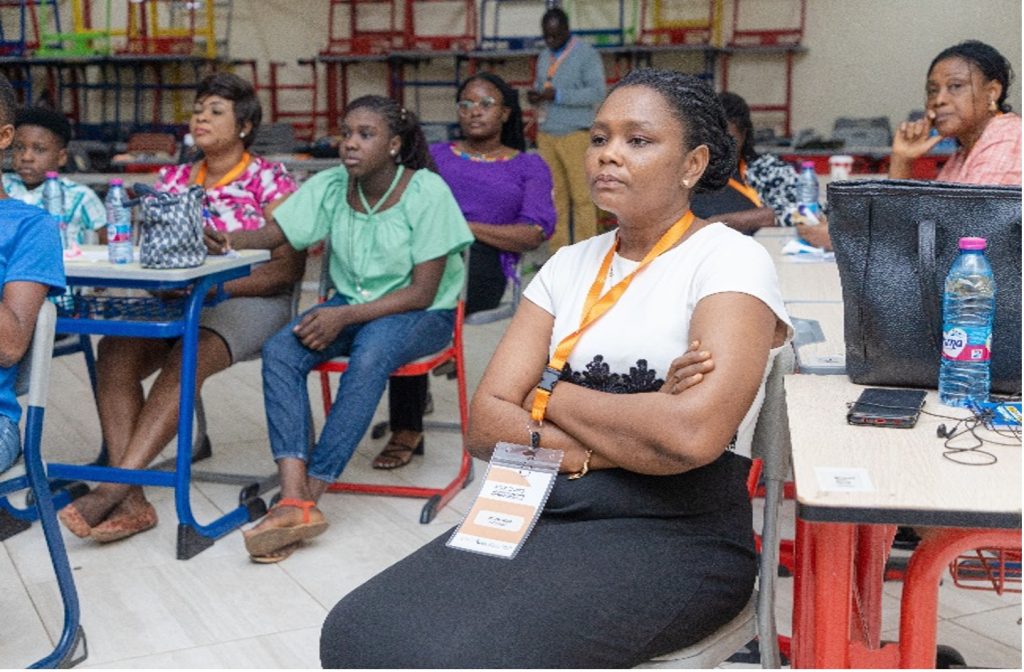
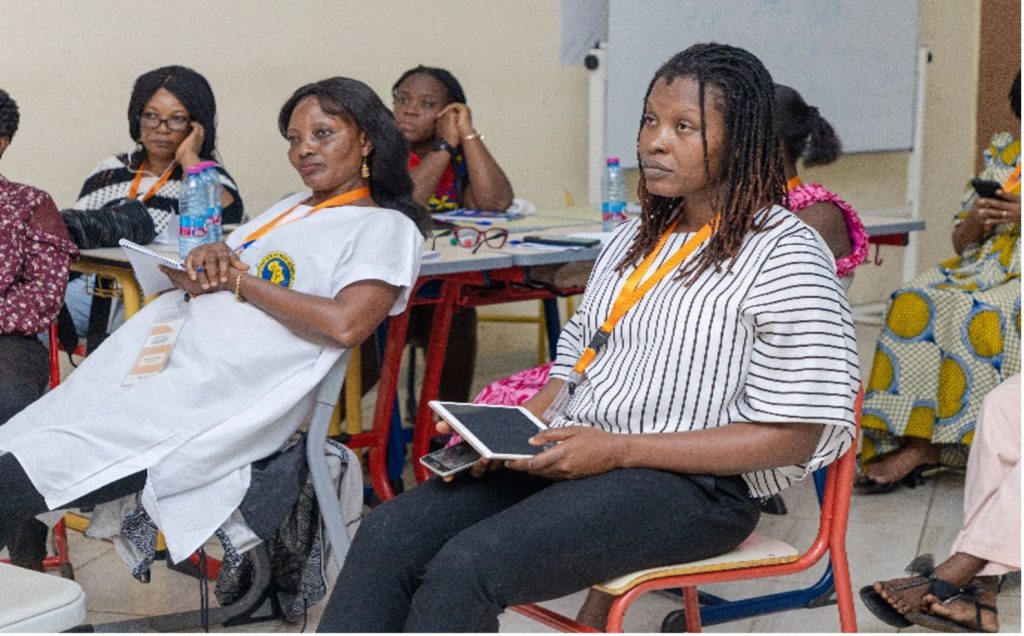
2. Business Communication and Negotiation
Communication is defined as the process in which information is transferred to a targeted audience intended to triggers an action. The process of communication involves the Sender, Encoding, Message, Channel/Medium, Receiver, Decoding, Feedback and Noise.
Negotiation on the other hand, is a form of business communication with partners to ensure a contract or agreement. Ethics is important in negotiation.
He said that as business owners who either want to communicate or negotiate, it is important to encode the message accurately using certain words or non-verbal methods to achieve the desired feedback from the target audience for the growth of the business. Participants were encouraged to interpret their message rightly during communication or negotiation to trigger an action.
Participants were advised to use multiple or integrated medium of communication depending on the message, its size to send their message to their target audience.
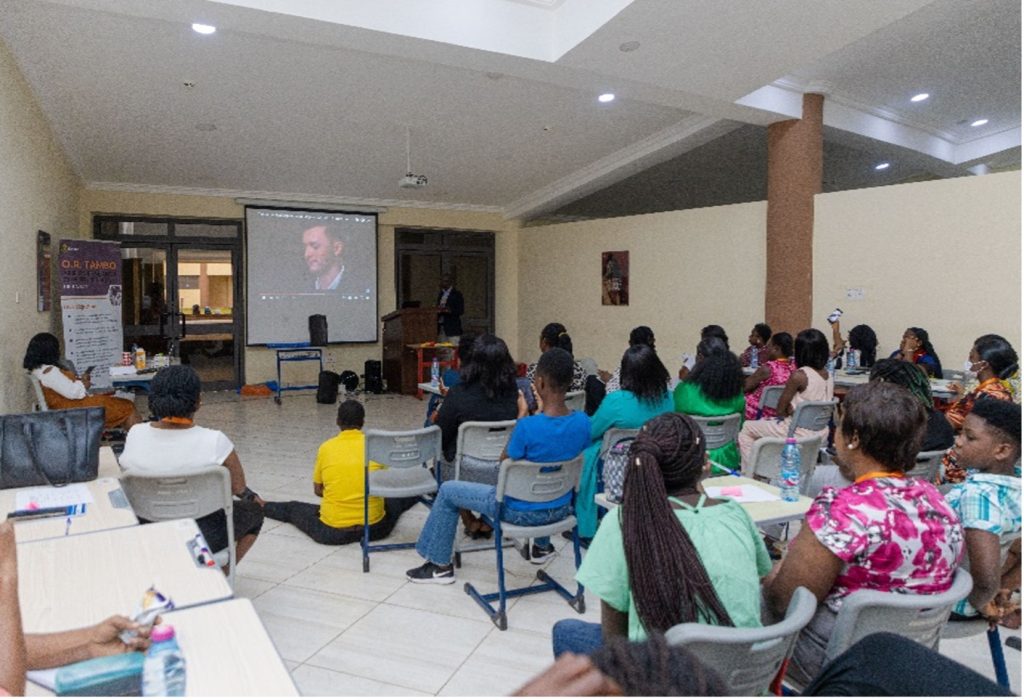
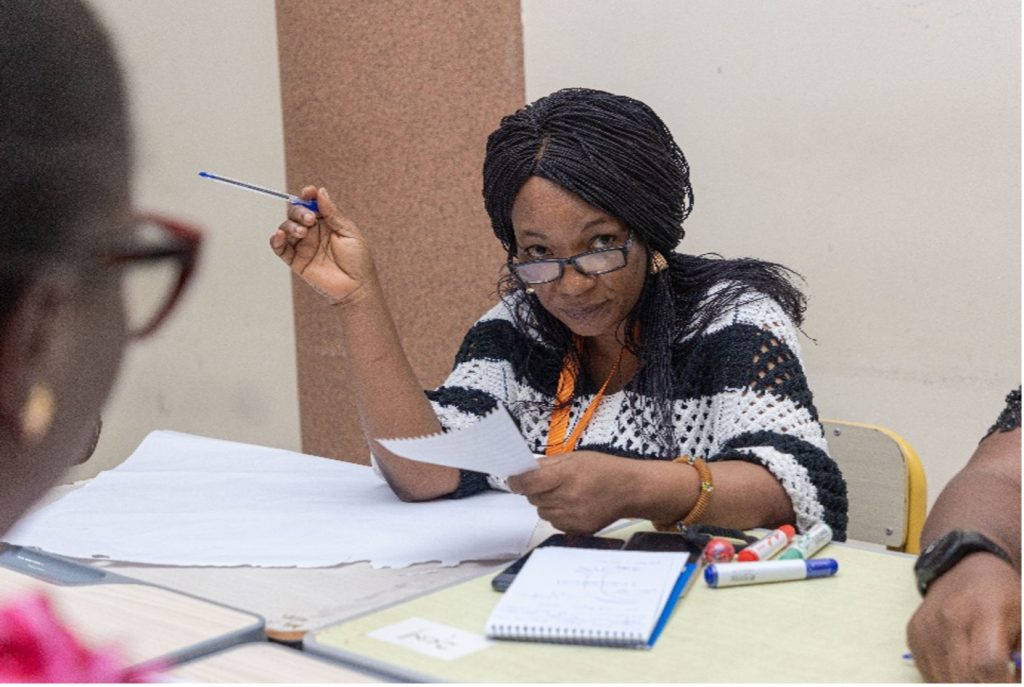
During negotiation, business owners are advised to develop some skills like confidence and firmness, determination, product knowledge and BATNA- Best Alternative to a Negotiated Agreement to properly understand all the available alternative to an agreement to reach a decision.
3. Sales and Marketing Plan Development
The lead facilitator emphasized the importance of identifying a target market, brand consistency, and leveraging the 7 Ps of the marketing mix: Product, Price, Place, Promotion, People, Process, and Physical Evidence. Participants were also guided on building brand strategy and setting a budget for marketing
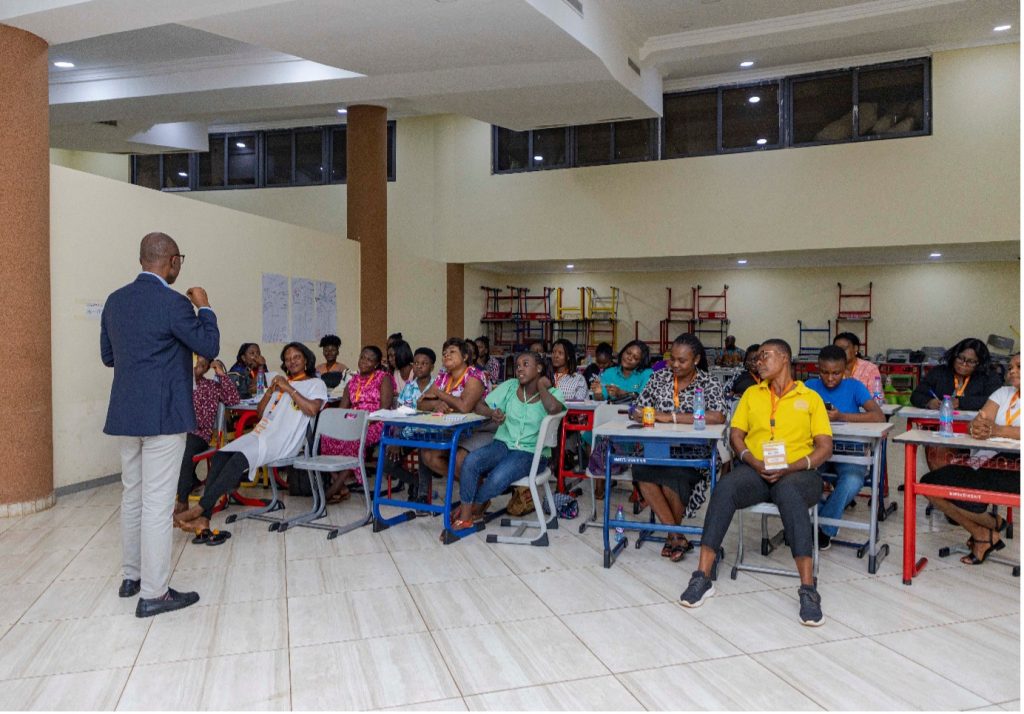
Day 2
The day’s training commenced with an overview of activities learnt from the previous day, and introduction of the activities of the day which included: Personal Financial Management, Book and Records Keeping, Budget and Budgeting Control.
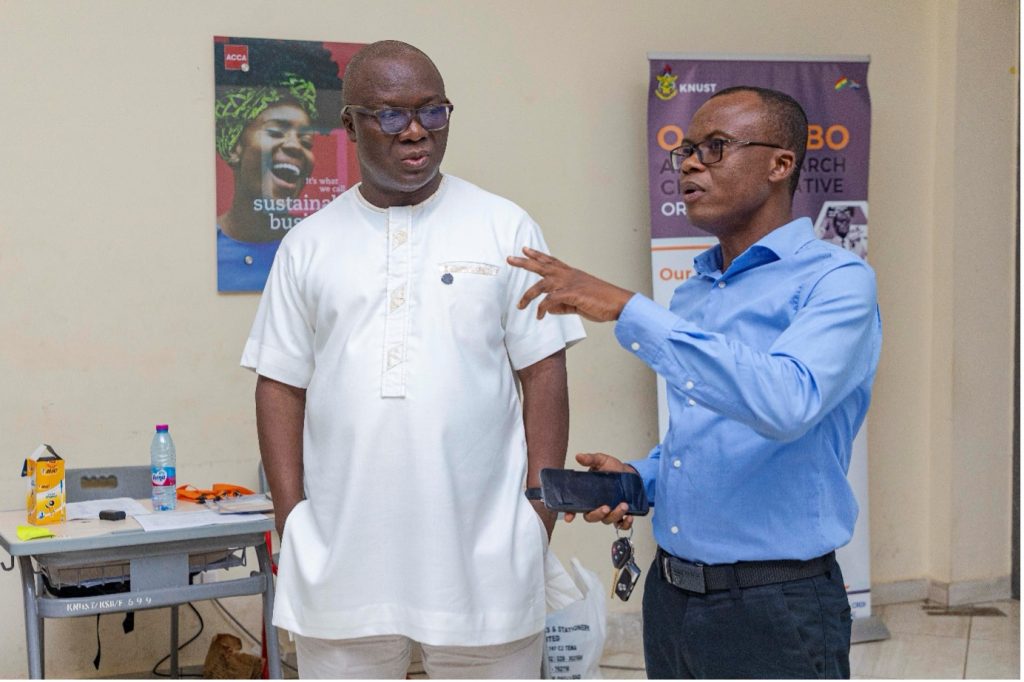
Personal Financial Management
The lead facilitator stressed the need for business owners to separate their personal finances from their business finances. He highlighted some steps such as keeping receipts and records of all business transactions, opening a separate bank account from their personal bank, paying themselves a salary and using accounting software to keep track of their business expenses and income. He said that managing their finances would help their businesses in financial planning, improve business profit, appropriate financial decision making, and adherence to legal requirements
Books and Records Keeping
The lead facilitator emphasized that most small business owners do not see the need to keep records of their business activities or transactions, however the success of a business depends on how it creates and keeps good records. He outlined various types of record keeping books and apps and allowed participants to share some commonly known ones. He again discussed the need to budget as it guides business owners in the implementation of their activities.
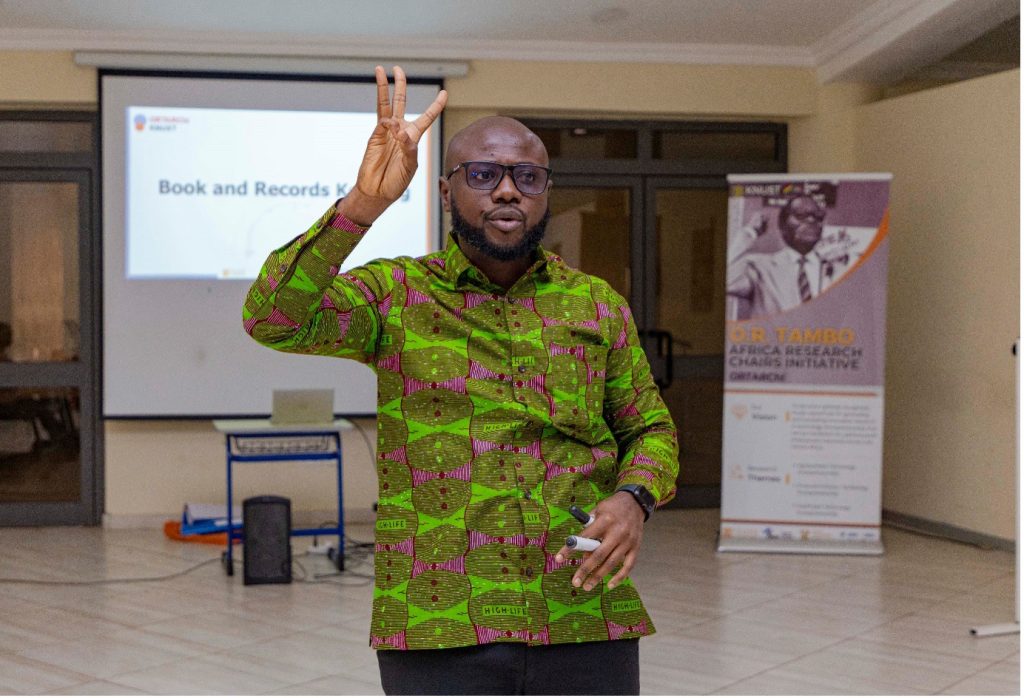
A sample of records-keeping books was shown for business owners to guide them in their businesses after the training. Participants also worked on various case studies to provide hands-on training in the preparation of a budget for their business
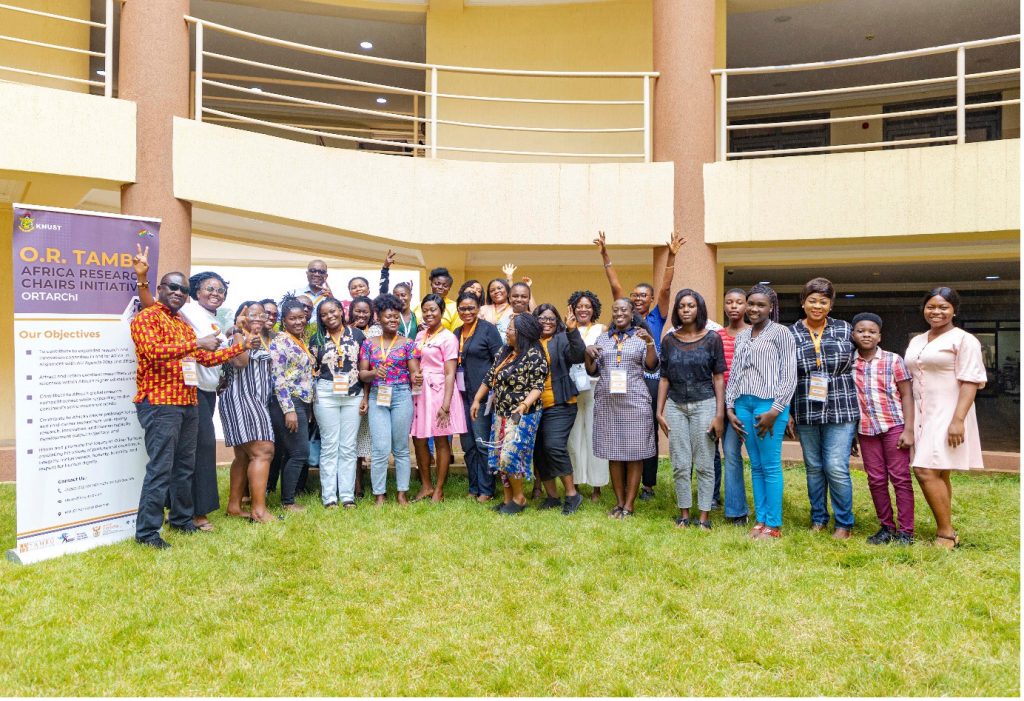
Conclusion
Following the knowledge gained during the training, participants expressed enthusiasm about the new skills acquired, noting the program’s potential to enhance their business operations. They expressed gratitude to the organizers of the training program and assured the application of knowledge gained from the training to their various businesses
The Project Manager, Mr Michael Nyamekye thanked the participants for honouring the invitation to acquire new skills for the growth of their businesses.
Participants had a tour of the Kumasi Business Incubator and were awarded a Certificate of Honour for participating in the professional training program for women entrepreneurs

